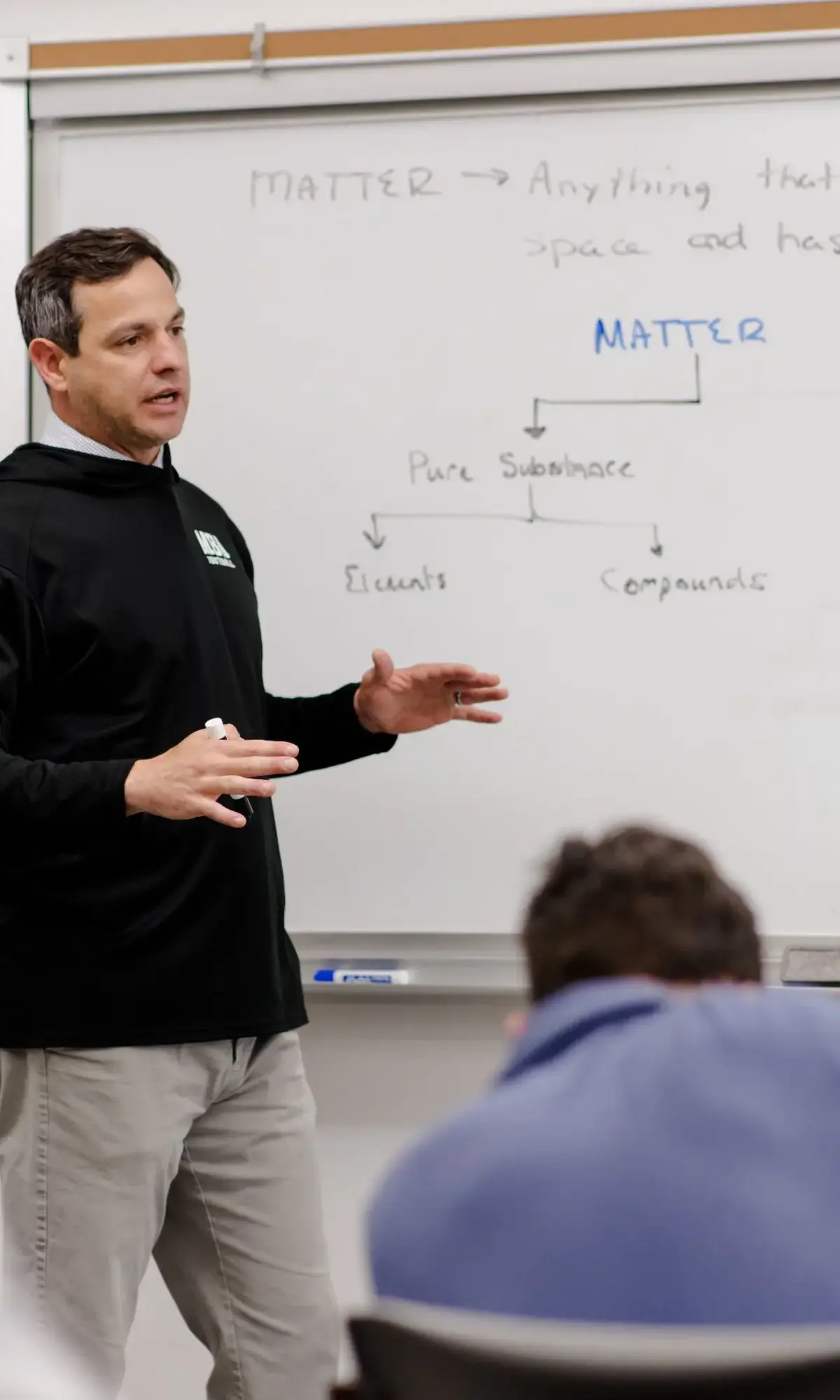Cultivating Curiosity, Creativity and Perspective |
|
At MBA, learning begins with curiosity. Our boys are encouraged to think deeply, engage fully, and approach education as a lifelong pursuit—not a finish line. They discover that growth comes not from getting everything right, but from asking the right questions and embracing challenges. |
Led by Thinkers. Shaped by Mentors.Montgomery Bell Academy faculty are driven by their unwavering belief in boys. We understand that boys experience transformative learning when they connect meaningfully with teachers and coaches who inspire and mentor. Our teachers are both experts in their disciplines and role models who inspire the boys to reach for their best and discover their purpose. |
The Heart of
|
|
The MBA scholar’s journey begins with everyday habits: coming to class curious, debating ideas, persisting in his effort, and taking responsibility for his own learning. Over time, those small actions deepen into lifelong virtues: the pursuit of wisdom, clarity of thought, and the confidence to speak with purpose. |
|
Learning at MBA is not about memorizing answers—it’s about uncovering meaning and forming good questions. We encourage boys to explore the "how" and "why," to challenge their assumptions, and to engage fully in the pursuit of understanding.
|
Where Inquiry Meets Opportunity
For students from seventh grade on, curiosity leads to experience through our Wilson Grants program. Each summer, boys pursue academic, cultural, and service opportunities that extend classroom learning - returning with deeper insight, practical skills, and purpose.
The Road to College |
|
|
College counseling is a thoughtful, student-focused journey that begins early and builds intentionally throughout high school. From ninth-grade introductions to senior-year application workshops, our program is designed to help students and families navigate each stage of the college search with clarity and confidence. Through a variety of grade-level events, campus visits, and evening programs on topics like need-based financial aid, testing, and merit-based scholarships, students gain a deeper understanding of the many pathways available to them after graduation. |
Recognizing Excellence |
|
Academic achievement is not simply measured in grades or accolades, it is reflected in the discipline of deep study, the courage to question, and the consistency of effort. MBA students are regularly recognized at the regional and national levels—from National Merit honors to achievements in science, writing, and the arts. These accomplishments are not endpoints, but milestones along a journey of growth. At MBA, success is earned, celebrated with humility, and viewed as preparation for meaningful impact. |
2025 Academic Achievements
|
30 National Merit Semi-Finalists and Commended Scholars |
|
162 Gold medals awarded in national language exams |
|
3 National championships earned in Mock Trial and Debate (high school and middle school) |
|
18 Cum Laude Inductees in 2025 |












